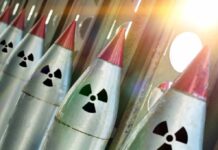
As regional tensions rise, Iran’s position becomes more aggressive.Israel is under significant threat not only from its adversaries, but also from its dwindling interceptor missile supplies. These missiles enable more accurate targeting. The long-term viability of defense is called into question.
Interceptor shortages as conflict escalates
Israel is currently dealing with a potential shortage of rocket and missile interceptors, which are critical to its defense strategy in the face of aggression from neighboring regions such as Gaza and Lebanon, as well as looming threats from Iran. With over 20,000 rockets and missiles reportedly fired at Israel since the start of recent conflicts, military analysts are concerned about the country’s ability to maintain a sufficient supply of interceptors. This situation may force Israel to make strategic choices about which targets to defend.
Following an initial Hamas attack, the Israeli Defense Forces (IDF) have faced daily attacks from Hezbollah, exacerbating the demand for interceptors. Despite extensive production efforts, the current threat’s scale makes meeting interceptor requirements more difficult.
Israel faces potential shortage of interceptor missiles amid Iran threats https://t.co/fRPQe3KEPb
— Kyle Orton (@KyleWOrton) October 15, 2024
US Assistance and Strategic Implications
The United States has dispatched a Terminal High Altitude Area Defense (THAAD) missile system to assist Israel with its missile defense challenge. This move aims to bolster Israel’s multi-tiered air defense framework, which includes the Iron Dome, David’s Sling, and Arrow systems, each designed for a different threat range. Nonetheless, the United States faces its own limitations in balancing support for allied needs, including those of Ukraine.
“We condemn these reckless attacks by Iran, and we call on Iran to halt any further attacks, including from its proxy forces,” said Pentagon Press Secretary Air Force Maj. Gen. Pat Ryder. “During the attack, the U.S. military coordinated closely with the Israeli Defense Forces to help defend Israel.”
Recent Iranian ballistic missile attacks underlined these challenges, with approximately 200 launched toward Israel. The joint defense strategy successfully intercepted many, although some did impact central and southern areas of the country. The U.S. played a critical role, deploying destroyers to fire interceptors alongside Israeli systems.
Escalation and International Reactions
Despite widespread international condemnation, attacks from Iran-backed forces continue, with Hezbollah’s declarations of expanded operations into Israel adding urgency to defensive preparations. The situation has forced Israel to assure allies, including the United States, that it will exercise restraint in its retaliatory strategies, particularly with regard to Iranian nuclear facilities.
“Israel’s munitions issue is serious,” Dana Stroul, an ex-US defense official, said. “If Iran responds to an Israel attack, and Hezbollah joins in too, Israel’s air defenses will be stretched.”
The turmoil has an impact on broader geopolitics, as European nations evacuate diplomats from Lebanon and the United Nations holds emergency meetings. Prime Minister Netanyahu has promised retaliation for Iranian actions, echoing sentiments of steadfast national defense.
Sources:
Israel faces potential shortage of interceptor missiles — report
Israel Tells U.S. It Will Limit Its Expected Strike on Iran to Military Targets, Officials Say











